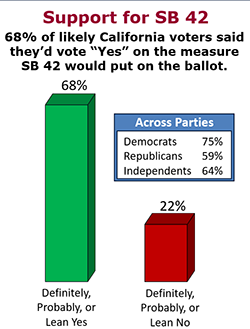 Mercury News editorial: Political disclosure deserves second act
It's outrageous that state legislators failed last month -- by only two votes -- to pass a bill that would have required political action committees to come clean on who pays for their ads in California. Given the huge number of campaigns gearing up for both candidates and initiatives on the November ballot, we need this legislation now. Supporters aren't giving up. Assemblywoman Julia Brownley, D-Los Angeles, the sponsor of the California DISCLOSE Act, plans to announce Monday that she's reintroducing a similar measure. We'll be watching to see which lawmakers do and don't support this common-sense proposal to bring clarity to the individuals and special-interest groups spending money to influence California voters. The bill that was defeated Jan. 31 in the state Assembly, AB 1148, would have required that political ads placed by PACs name the top three people or corporations who contributed $10,000 or more to a California candidate or measure. It also required TV and print ads to show the top funders in bold type that viewers can easily read. At least 13 organizations, including California Common Cause, supported this measure. In California, nearly $200 million was spent on November 2010 ballot measures alone, much of it by corporations that contributed to committees with obscure names like "Stop Hidden Taxes," according to the California Clean Money Campaign, another supporter of Brownley's bill. The bill received 52 votes in the Assembly but was two short of the two-thirds needed for measures that amend the Political Reform Act of 1974. Legislators need to quickly get behind the new bill, AB 1648. There's no reason to conceal who's behind an ad campaign to influence voters. Or rather, there's no honorable reason. See the article on San Jose Mercury News website (In accordance with Title 17 U.S.C. Section 107, this material is distributed without profit to those who have expressed a prior interest in receiving the included information for research and educational purposes.) |
|
|










